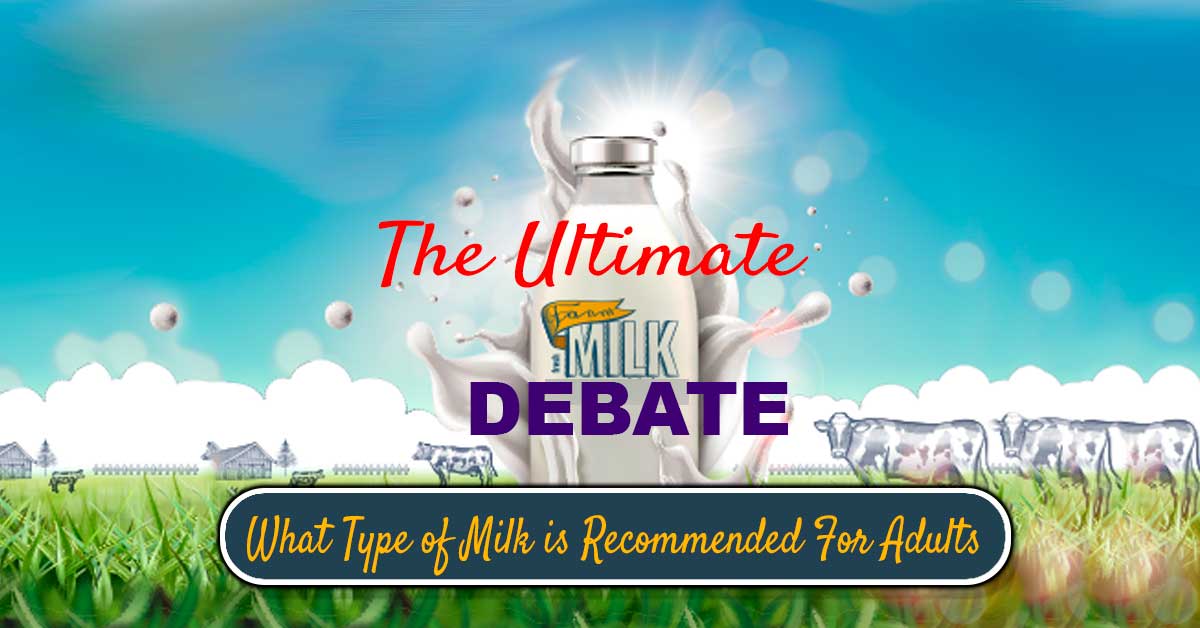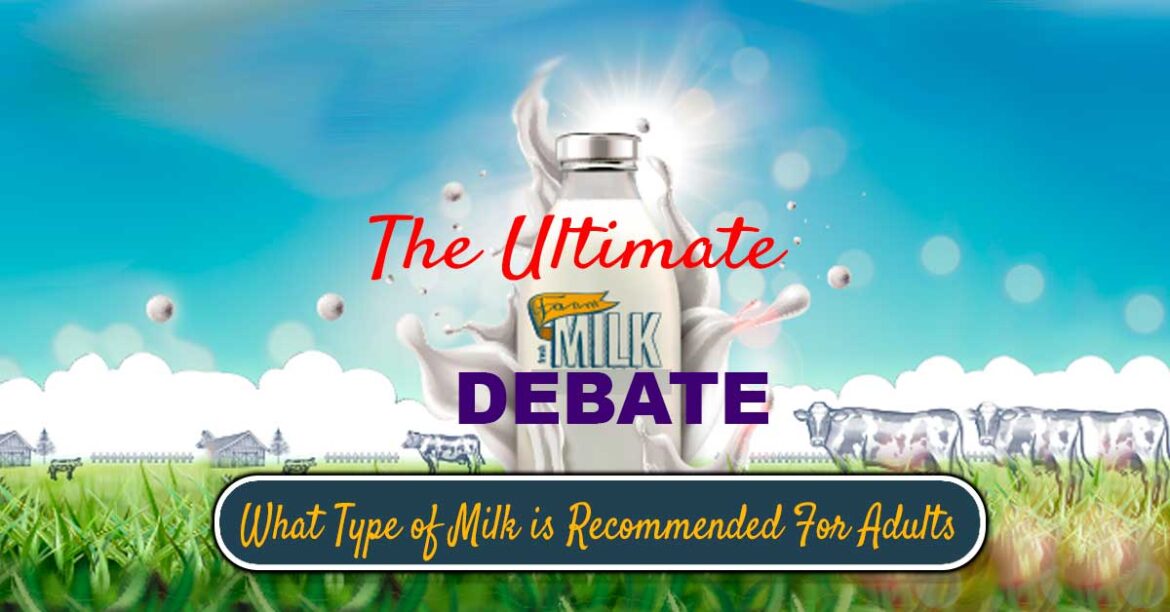Have you ever wondered why humans persist in drinking milk long after other animals wean off? The longstanding belief in the health benefits of milk clashes with emerging studies revealing potential drawbacks. So, the question looms: What Type of Milk is Recommended For Adults.
Beyond the touted benefits for bone health, milk consumption is now associated with gastric issues, from bloating to Irritable Bowel Syndrome. The commercial milk market introduces another layer of concern with its cocktail of preservatives and antibiotics. The challenge before all is to Optimize your health and getting our body perfectly tuned for peak performance.
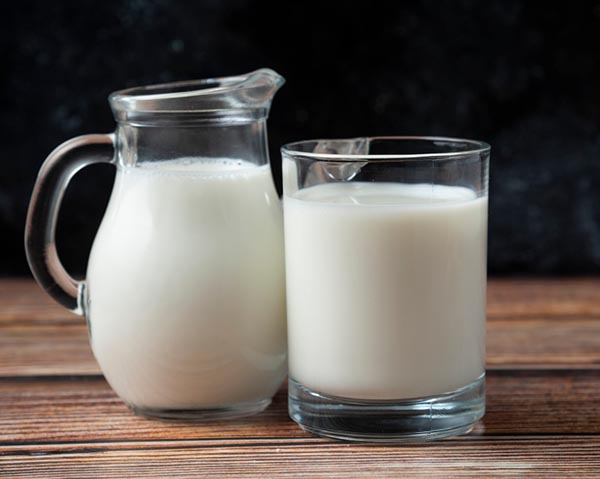
In this article, we bust the milk myths in India. Confronting the pivotal question: Is Milk Good for You?
What are the advantages of regularly consuming milk? What are Milk substitutes for sufficient calcium if milk is not part of your dietary choices? Should lactose-tolerant individuals reconsider their milk intake?
Let’s undertake the journey together to answer these crucial questions with evidence-backed insights. As we delve into the diverse world of milk, our journey begins with the crucial question: What type of milk is recommended for adults?
Also Read:
- Born to Be a Billionaire: This Zodiac Sign Rules the Rich List
- Beyond the Myth: Do ‘Functional Foods’ Like Apples Keep Doctors Away?
Milk Marvels: Fun Facts and Trivia about Milk
Unveiling the Global Tapestry of Dairy Delights: From Origin to Global Dominance. Unraveling the Intriguing World of Dairy Delights. Creamy swirls to cheesy curds, milk’s journey is udderly fascinating! Dive into a world of moo-vellous facts and quench your thirst for trivia.
- Ancient Origins: Milk consumption dates back to 6000 BC, with evidence suggesting early farming communities in Europe and the Middle East kept dairy animals.
- Butter Sculptures: Tibetan monks crafted intricate butter sculptures as early as the 7th century, showcasing artistic expression with this dairy product.
- World’s Largest Producer: India, holding the title for the largest milk producer globally, witnessed a 4% increase in production, reaching a staggering 230.58 million tonnes in 2022-23, further solidifying its significant contribution to the dairy industry.
- Dairy Discoveries: Cows chew around 50 times per minute. A gallon yields 340-350 squirts. Cows consume 35 gallons of water daily, akin to a bathtub’s volume.
- Milk’s Color: The white color of milk is attributed to its fat content and the dispersion of light, creating a visually appealing beverage.
- Udderly Unique Prints: Cows’ udders have distinctive prints, akin to human fingerprints, making each cow’s pattern unique.
- Milk and Cookies Tradition: The popular tradition of pairing milk with cookies became widespread during the Great Depression as a simple, affordable treat. Casein, found in milk products, is a protein that soothes irritated palates.
- Butter Churning Folklore: Folklore abounds with tales of churning butter during a full moon, believed to yield better results due to lunar influence.
- Cow’s IQ: Cows are known to have excellent memories and problem-solving skills, showcasing intelligence beyond their reputation.
- World Milk Day: Established by the Food and Agriculture Organization, World Milk Day on June 1st celebrates the nutritional value and cultural significance of milk globally.
The Current State of Milk Consumption
Suppose you’re like most adults who grew up drinking milk at every meal. But as you’ve gotten older, you’ve probably wondered if drinking milk is the best choice. The truth is, cow’s milk may not actually be necessary or the healthiest option for adults.

Cow’s milk is designed by nature for baby cows, not humans. While it does contain calcium and other nutrients, it also has substances like Lactose, casein, and bovine growth hormone that can be hard for us to digest and may even promote inflammation in the body. Milk drinking side effects include discomfort like bloating, gas, or stomach pain from milk drinking. Milk intolerance affects 60% of Indians, and many of them are unaware of it.

The good news is that plenty of milk substitutes, offering the same or even more calcium and nutrition without the undesirable effects, cater to diverse preferences. For those seeking dairy-free milk alternatives, there are plenty to choose from, ensuring a personalized answer to the question: What type of milk is recommended for adults?
As per studies, you may not need milk to get your daily calcium dose or support bone health. A balanced diet with lots of leafy greens, beans, fish with edible bones, and calcium-fortified foods can provide all the necessary calcium. It may be time to opt for a dairy-free alternative to milk. That’s better suited for the human body. Your stomach will thank you!
Milk Consumption Habits of Humans vs. Other Animals
Have you ever noticed that humans are the only animals that continue drinking milk into adulthood? No other species does that.
As humans, we’re taught early on that milk “does a body good.” But our bodies weren’t designed to digest milk. Only a tiny percentage of people can digest Lactose, the sugar in milk, without problems. For the rest of us, milk can wreak havoc on our stomachs and intestines.
Lactose Intolerance and Milk Alternatives
For individuals with concerns, “Is consuming regular milk harmful to your health?” Lactose intolerance might hold the answer.
Lactose intolerance is the body’s inability to digest Lactose, a sugar in milk. Symptoms include bloating, diarrhoea, and stomach cramps after consuming dairy. Lactose is a sugar in milk. Lactose intolerance occurs when the body lacks an enzyme to digest it, causing discomfort after consumption.
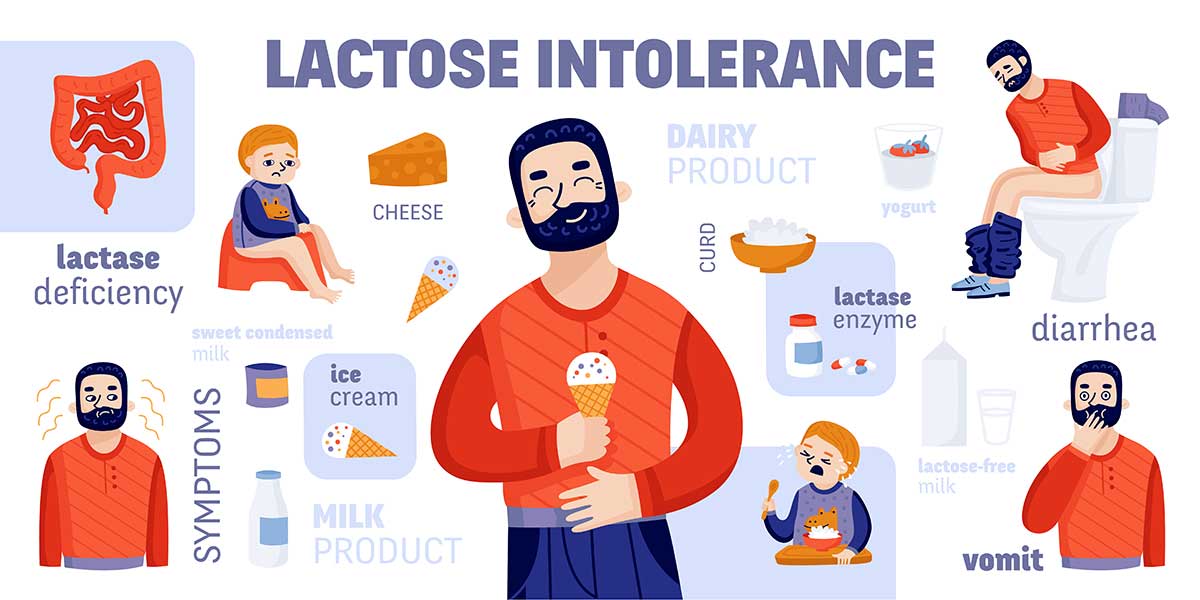
Despite age-old wisdom, the stark reality persists: Three in four Indians are intolerant to milk, as confirmed by a study conducted at the Sanjay Gandhi Post Graduate Institute of Medical Sciences (SGPGIMS).
To alleviate discomfort, individuals often turn to various healthy milk alternatives. Popular choices, including lactose-free milk and plant-based options like almond, soy, or oat milk, offer diverse flavors and nutritional profiles. These alternatives not only cater to lactose-intolerant individuals but also provide a satisfying and symptom-free experience. So, when considering what type of milk is recommended for adults, these alternatives become valuable considerations for both taste and well-being.
What is Lactose free milk: Decoding
Lactose free milk undergoes a process where lactase, an enzyme breaking down Lactose, is added. This makes it suitable for those with lactose intolerance, providing a gentler option without compromising on essential nutrients in regular milk. Now you know why Lactose free milk is good for you.

Next time you pour a glass of milk, consider milk’s benefits and disadvantages. Considering side effects of drinking milk, is it worth it? Your health and happiness are too important to ignore what your body tells you. Maybe it’s time for a dairy-free alternative.
Health Effects: What Type of Milk is Recommended For Adults
Milk is a nutrient-rich liquid produced by mammals, notably cows. It is a staple in various diets worldwide, packed with essential nutrients like calcium, protein, and vitamins. The nutritional benefits of milk are often debated with questions: Is Milk Good for You?
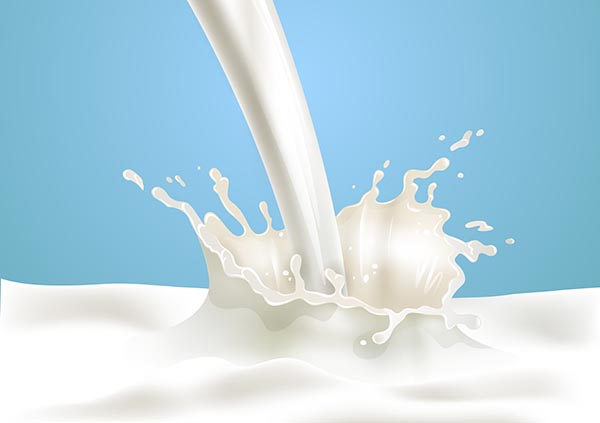
Milk Nutrition Facts: A Snapshot
Milk is a nutritional powerhouse, offering a spectrum of vital nutrients crucial for overall health. Understanding the nutritional composition empowers informed dietary choices.
Three primary milk types based on fat content
Available at all grocery stores and online.
- Whole Milk: With 3.25% milk fat.
- Low-Fat Milk: Contains 1% milk fat.
- Skim or Fat-Free Milk: Virtually fat-free.
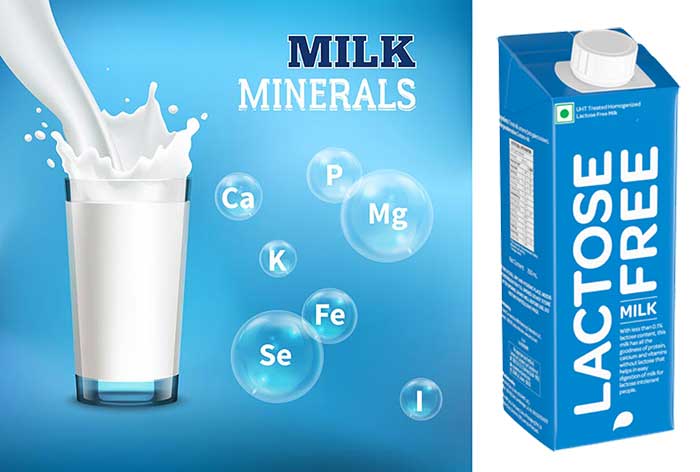
Vitamins Enrichment:
Manufacturers fortify milk, especially lower-fat variants, with vitamins A and D. The inherent fats in milk aid the absorption of fat-soluble vitamins like A, E, and D. Adding extra fat-soluble vitamins compensates for fat removal, enhancing nutritional value.
Omega-3 Fortification:
Some brands supplement milk with omega-3 fatty acids due to their natural scarcity in milk. Research suggests cows don’t efficiently convert dietary supplements into omega-3 fatty acids, prompting enrichment for added health benefits.

Nutrient information is provided per 246-gram (g) cup for various milk types.
| S. No | Nutrient | Whole Milk | Low Fat Milk | Skim Milk |
| 1. | Calories | 152 | 106 | 83.6 |
| 2. | Protein | 8.14 g | 8.32 g | 8.44 g |
| 3. | Fat | 7.97 g | 2.34 g | 0.19 g |
| 4. | Carbohydrates | 11.5 g | 12.7 g | 12.1 g |
| 5. | Saturated fat | 4.63 g | 1.4 g | 0.12 g |
| 6. | Calcium | 306 mg | 310 mg | 325 mg |
| 7. | Vitamin D | 2.39 mcg | 2.61 mcg | 2.71 mcg |
| 8. | Vitamin A | 79.7 mcg | 143 mcg | 157 mcg |
| 9. | Iodine | 94.4 mcg | 89.1 mcg | 87.8 mcg |
The Nutritional Triumphs of Milk Consumption
Milk, a dietary cornerstone, offers a myriad of health benefits:
- Bone Health: Rich in calcium and vitamin D, milk fortifies bones, preventing osteoporosis.
- Muscle Development: Packed with quality proteins, milk supports muscle growth and repair.
- Heart Health: Potassium in milk helps regulate blood pressure, reducing cardiovascular risks.
- Nutrient Cocktail: A source of vitamins A, B12, and essential minerals, contributing to overall well-being.
- Weight Management: The protein content induces a feeling of fullness, aiding in weight control. Incorporating milk into your diet ensures a wholesome blend of nutrients for a healthier lifestyle.
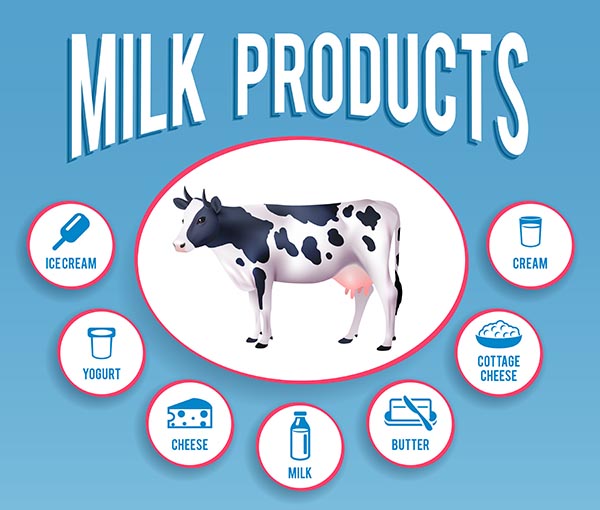
Is Milk Good for Adults?
Milk can benefit adults, offering essential nutrients like calcium and protein. However, individual tolerance varies, and factors like lactose intolerance or dietary preferences should be considered.
Is Milk Good for Children?
Yes, milk benefits children, providing crucial nutrients for growth and development. It’s a rich calcium and vitamin D source, supporting bone health and overall well-being.

Is Drinking Milk at Night Good or Bad?
Drinking milk at night can be beneficial. It contains tryptophan, promoting sleep. The calcium aids melatonin production. However, excessive intake may cause discomfort for those who are Lactose intolerant. Moderation is vital for a restful night.
Milk: Negative Health Aspects
While milk boasts nutritional perks, it isn’t exempt from criticism.be aware of the fact: is drinking milk good for you? Delve into the potential drawbacks associated with regular milk consumption:
- Digestive Discomfort: Milk contains Lactose, posing challenges for many. Common issues include bloating and stomach cramps, particularly for those with lactose intolerance.
- Controversial Studies: Some research questions the widely acclaimed benefits, fueling debates on the overall health impact.

Exploring alternative milk offers the healthiest lactose-free milk option while delivering vital nutrients. For insight into the side effects of drinking milk, it is essential to understand its benefits and disadvantages. This will empower individuals to know the best milk for gut health. Know the benefits of drinking milk every day to suit your body. Align your health needs and preferences.
Types of Milk Available
When it comes to milk, you have plenty of options these days. The types of milk available go way beyond just cow’s milk. Here are some of the popular healthiest non dairy milk:
Plant Based Milks
Made from nuts, seeds, grains or legumes, plant milks provide a dairy-free option. Popular varieties include:
- Almond milk: Nutty, creamy and naturally lactose-free. Low in protein but high in vitamin E.
- Soy milk: Made from soybeans, it’s high in protein and contains isoflavones. It can be genetically modified, so choose organic.
- Coconut milk: Naturally sweet, high in MCTs (medium chain triglycerides) but low in protein. Great for smoothies.
- Oat milk: Naturally creamy, high in fibre and protein. Contains beta-glucan, which can help lower cholesterol.
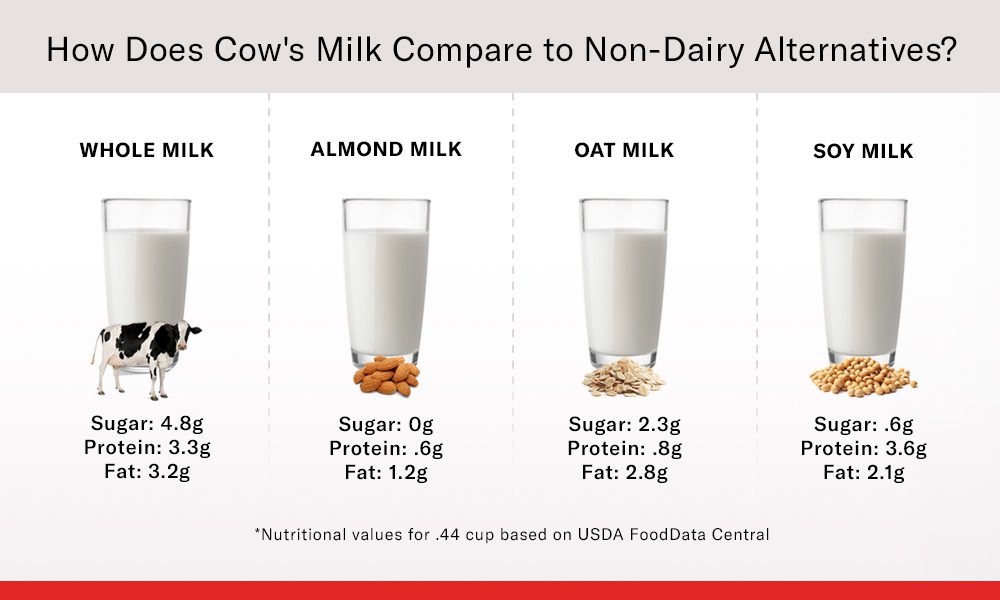
Alternative to Cow Milk
The primary sources of world milk production are cattle, buffaloes, goats, sheep, and camels, while less conventional milk animal names include yaks, horses, reindeer, and donkeys.
If you want an animal-based milk without the Lactose, try:
- Goat’s milk: Easier to digest, less allergenic and higher in calcium than cow’s milk. Still contains Lactose, so all may not tolerate it.
- Sheep’s milk: Rich, creamy and high in protein, fat, calcium and minerals. Also contains Lactose.
The options for alternative milk have expanded a lot from the days of just skim, 2% or whole cow’s milk. By exploring plant-based or alternative animal milk. You can find an excellent non-dairy milk substitute or better-tolerated animal milk to meet your needs. The choice is yours!
Debunking Myths Surrounding Milk
Many people grew up believing milk is essential, especially for bone health. However, there are some myths surrounding milk that need to be debunked.
Myth #1: Milk is necessary for calcium and strong bones.
Contrary to popular belief, milk isn’t necessary for calcium and bone strength. While it contains these elements, various foods like leafy greens and fortified alternatives contribute to bone health. Relying on a diverse diet ensures ample calcium intake without an exclusive dependence on milk.
Myth #2: Milk is suitable for everyone
Milk, commonly touted as universally good, doesn’t suit everyone. While it provides essential nutrients, lactose intolerance and dairy allergies are prevalent. Individuals with these conditions may experience digestive discomfort. Moreover, some studies question the broad health benefits of milk. Tailoring dietary choices based on individual needs and exploring alternative sources ensures a more inclusive and health-conscious approach to nutrition.
Myth #3: Rethinking Milk as a health Food
Often perceived as a healthy food, milk undergoes extensive processing, harbouring saturated fat, sugar, hormones, and antibiotics. While it offers nutritional benefits in moderation, deeming it a healthy food may be misleading. Embracing a balanced diet rich in whole foods—fruits, vegetables, whole grains, and lean proteins—proves a healthier approach.
Myth #4: Does Drinking Milk Make You Taller?
While milk provides essential nutrients for overall health, height is predominantly influenced by genetics and overall nutrition. Busting the popular belief, “does milk make you taller.” A well-rounded diet encompassing diverse food groups contributes more significantly to overall growth and well-being than singularly attributing height to milk consumption.
Milk may not be essential or even suitable for everyone. A balanced diet with alternative calcium and other nutrient sources is perfectly healthy. Don’t believe the myths – your body is the best guide. Be aware to say NO! If milk doesn’t make you feel good.
Also Read:
- The Best Office Desk Exercises in 2023: with No Equipment
- Sustainable Growth: Is India’s Circular Economy Driving a Resurgence in Green Jobs?
Choosing the Right Milk for Your Health
Choosing the suitable milk for you depends on your health needs and personal preferences. For most adults, cow’s milk may not be the best option. Many people are Lactose intolerant or sensitive to specific milk proteins. The good news is there are now many plant-based milks and dairy-free alternatives.

Almond, soy, rice, oat, and coconut milk are all popular milk substitutes. Almond and soy milk are the most nutritious, with added protein, calcium, and vitamin D. Rice and oat milk are typically gluten-free and low in calories. Coconut milk contains healthy fats but little protein. Each alternative has a distinct flavour, so you may need to try a few to find your favourite.
If you want the nutrition of cow’s milk without the discomfort, lactose-free cow’s milk or A2 milk are also options. Lactose-free milk has had the sugar lactose broken down, while A2 milk comes from cows that produce only the A2 beta-casein protein. For some, this milk is more accessible to digest than regular cow’s milk.
The bottom line is you have to choose what type of milk is recommended for adults based on your needs, preferences, and how different milks make you feel. Don’t assume that cow’s milk is the only healthy choice. Try different kinds of milk and see which one you enjoy and which digests well. Your palate and body will appreciate it!
The Rise of Milk Alternatives
The popularity of plant-based milk alternatives presents a boon for lactose-intolerant individuals and vegans seeking diverse options. As research challenges cow’s milk’s nutritional indispensability, these best alternatives are gaining widespread acceptance.
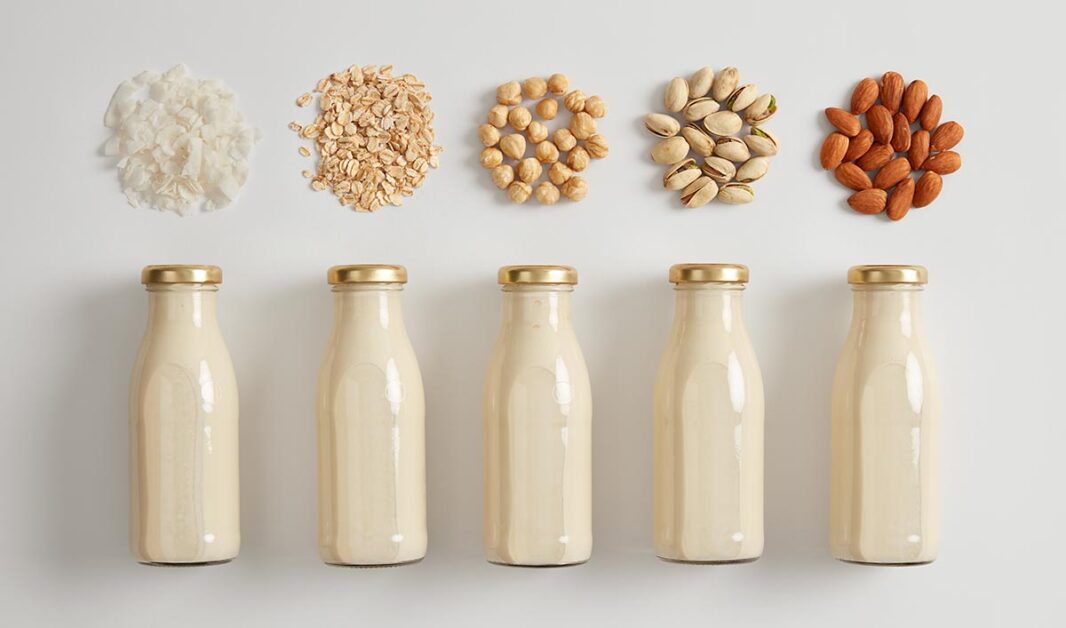
- Dairy-Free Favorites: Almond, coconut, and soy milk lead the pack, offering calcium and minerals sans Lactose or potential hormones and antibiotics.
- Protein Consideration: While lacking cow’s milk protein, alternatives like almond and soy provide viable options with careful label scrutiny.
- Lactose-Free Options: For the lactose-intolerant, Goat’s milk and nut-based choices like cashew or macadamia milk offer palatable alternatives.
- Oat Milk Upcoming Choice: Soaked oats blended with water create creamy, fibre-rich oat milk. Emerging as a versatile option fortified with essential nutrients.
- Expanding Choices: Ongoing innovations cater to diverse needs, allowing individuals to align their milk substitute with health, lifestyle, or environmental preferences.
The proliferation of alternative milk, driven by a spectrum of motivations, empowers consumers with unprecedented choices.
DIY Dairy: Making Your Plant-Based Milk at Home
If you want to avoid dairy milk but still enjoy the creamy texture of milk in your coffee or cereal, making your plant-based milk at home is easy and affordable. A blender and a few basic ingredients are all you need.
Nut Milk
Almond and cashew milk are popular dairy-free alternatives with a creamy, nutty flavour. Soak 1 cup of raw almonds or cashews in water for at least 2 hours. Drain and rinse, then blend with 3 to 4 cups of fresh water until smooth and creamy. Pass the mixture through a fine-mesh strainer or cheesecloth. Add a bit of vanilla extract and maple syrup to taste. Keep refrigerated for up to 5 days.
Oat Milk
For creamy oat milk, blend 1 cup rolled oats, 4 cups water, and a pinch of salt until smooth. Strain and chill. Oat milk has a naturally sweet flavour and contains fibre, iron, and magnesium.

Coconut Milk
Blend the meat of 1 fresh coconut with 2 cups water. Strain and chill. Coconut milk has a subtle coconut flavour and contains lauric acid, which has antibacterial properties.
Making your own plant based milk ensures you know exactly what’s in it and allows you to control the ingredients. Try a few recipes—you may find a new favourite milk! And, of course, you’ll be doing your part to reduce reliance on industrial dairy farming.
Expert Opinions and Scientific Research
Experts and studies offer some conflicting opinions on milk. Explore scientific perspectives on milk consumption for adults, examining types of milk, health considerations, and expert opinions for evidence-based insights.
- Types of Milk: Scientific studies compare nutritional content in various milk types, offering insights into their benefits and drawbacks. Select the milk alternative suited to our body.
- Healthiest Milk: Research indicates which milk is the Healthiest. Choice may vary based on individual health needs. The American Heart Association advises the consumption of fat-free, 0.5% fat, and 1% fat milk due to their lower fat, saturated fat, cholesterol, and calorie content, along with slightly higher nutrient levels.
- Side Effects: Scientific research recognizes potential side effects of milk, including lactose intolerance issues, and highlights individual variations in tolerance. Scientific literature discusses the potential benefits of cow’s milk.
- Necessity for Adults: Recent studies suggest that while milk provides essential nutrients, it may not be necessary for all adults, and dietary needs can be met through milk susbtitutes.
- Daily Consumption: Scientific literature offers insights into the benefits of drinking milk everyday. Moderation consumption with considerations for the time of day providing potential advantages.
- Bone Health: Research explores the link between calcium and milk. Emphasizing a complex interplay of factors beyond just milk intake.
- Lactose Intolerance: Scientific findings guide lactose-intolerant individuals. Best milk to avoid bloating minimizes discomfort. There is a greater demand for various milk substitutes, each with its nutritional profile.
As with many nutrition topics, both sides have good arguments regarding is cow milk good for adults. The bottom line is that milk is not essential, and its effects seem to vary from person to person based on individual factors like lactose tolerance, diet, and health conditions. The healthiest approach is choosing what works for your body and nutritional needs.
Decoding the Milk Dilemma: What Type of Milk is Recommended For Adults
At the outset, you may ponder, “is regular milk bad for you”. Delve into the Pros and Cons of Drinking Milk.
Key factors Influencing your Choice
Navigating milk choices involves considering factors like fat content, nutritional profile, and dietary needs. From plant-based to lactose-free options, find the perfect match for your health preferences. Participating in the ongoing debate: What type of milk is recommended for adults, considering health, nutrition, and individual preferences.
- Healthiest Milk: Consider fat content, nutritional profile, and dietary needs when choosing the healthiest milk, such as fat-free or low-fat options with essential nutrients.
- Plant-Based Milk: Low calories and lactose-free, yet nutrient variations may exist.
- Lactose-Free Milk (Lactaid): Retains cow’s milk nutrition sans Lactose. It caters to those with lactose intolerance.

Considerations
- Tailored Choices: Opt for unsweetened plant or lactose-free milk based on specific needs.
- Nutritional Awareness: Compare brands for calcium, vitamin D, and protein content.
- Balanced Diet: Blend dairy or alternatives into your diet for comprehensive nutrition.
There’s no one-size-fits-all answer. Moderation is key. Listen to your body; choose milk that fuels without discomfort. Don’t forget to hydrate yourself. Explore, experiment, and find the milk that aligns with your needs and preferences.
Also Read:
- Protein: 10 Secrets to Optimal Health And Well-Being
- Do You Know the Top Reasons Why You’re Not Hungry in the Morning?
- Benefits of Tea: Creating Tranquility in a Busy World
FAQ: What Type of Milk is Recommended For Adults
What Happens to Your Body When You Drink Milk Every Day?
Regular milk consumption, if not lactose-intolerant or dairy-allergic, offers health perks—improving bone health and potentially aiding cognitive function. Remember, moderation is vital for optimal benefits.
Which Milk is the Healthiest?
The healthiest milk depends on individual needs. Low-fat cow’s milk offers essential nutrients with less fat. Plant-based options like almond or soy cater to various dietary preferences.
What Would Happen if We Stopped Drinking Milk?
Stopping milk consumption may lead to nutrient gaps, impacting calcium, vitamin D, and protein intake. Alternative sources should be incorporated to maintain overall health and nutritional balance.
Is the Calcium and Milk Connection a Myth?
Contrary to the myth, milk isn’t the sole source of calcium. While it provides this essential nutrient, diverse foods like leafy greens and fortified products contribute.
Additional Queries : People Ask
What Are the Best Milk Substitutes or Healthy Alternatives?
Top choices include almond, soy, and oat milk. These alternatives offer various flavours and nutritional benefits, catering to lactose intolerance, dietary preferences, and health-conscious individuals.
What Other Animal Milk Can We Drink?
Besides cow milk, Goat, camel, and buffalo are notable milk alternatives. Often better tolerated, it offers similar nutritional benefits with potential digestive advantages.
Conclusion
So there you have it. The truth about milk: why is milk bad for you, or Is milk good for you?The research shows that cow’s milk isn’t essential and may even harm your health when considering- What Type of Milk is Recommended For Adults. The healthiest choice is to make a personal choice after understanding health benefits.
The landscape has transformed in the ever-expanding realm of milk alternatives, offering a rich tapestry of options beyond traditional cow’s milk. Health considerations, dietary restrictions, and environmental consciousness drive the popularity of plant-based choices. It reflects a paradigm shift in consumer preferences. Almond, coconut, and soy stand as dairy-free champions, providing essential nutrients without the baggage of Lactose or potential additives.
For lactose-intolerant, Goat’s milk and nut-based alternatives offer palatable solutions, while oat milk emerges as a creamy, fibre-packed contender.
As the milk alternative landscape evolves, it signifies a departure from conventional norms, granting individuals unprecedented freedom to choose their milk, aligning with diverse lifestyles and values.
Make the switch today – your bones, digestion, and skin will be glad you did!
Our Digital Imprints:
Anuj Mahajan is a Mass Communication Specialist,
ICF Certified Coach & Corporate Trainer. Motivational Speaker / NLP Lifecoach.
Chief Operating Officer: Nuteq Entertainment Pvt Ltd, and
Co-Founder: Trendvisionz – A Premier Digital Marketing Agency in India
Get Connected to us with our Newsletters-Transforming Lives… Creating the magic. Just – Believe ~ Practice ~ PerformBizTech Chronicle… Navigating Tomorrow’s Tech Frontiers 🚀
Join my LinkedIn Group: Digital Marketing, Content Creation World Group
Follow me on Twitter or LinkedIn. Check out my website.
